![]()
Wed, Dec 5, 2012 | By Gareth H. Jenkins
This article was first published in the Turkey Analyst, vol. 5 no. 23 (www.turkeyanalyst.org), a biweekly publication of the Central Asia-Caucasus Institute & Silk Road Studies Program Joint Center. © Central Asia-Caucasus Institute & Silk Road Studies Program Joint Center, 2012.
In recent months, Turkish Prime Minister Recep Tayyip Erdoğan has made a string of highly controversial public statements which appear indicative of an authoritarian mindset. For some, they are a sign that Erdoğan is discarding the patina of democratic pluralism of the last ten years and reverting to the dogmatic intolerance of his early political career. Others claim that Erdoğan’s provocative statements are merely a tactical maneuver, a ploy to distract public attention from government failures and embarrassments, and that he has no intention of acting upon them.

Erdogan fiercely criticized “The Magnificent Century”, a serialized costume drama set during the reign of Sultan Suleiman the Magnificent, for its numerous inaccuracies and declared that he expected the courts to take action.
Background
Although his supporters like to portray him as being outspoken and fearless in defense of his principles, Erdoğan arguably owes his acquisition of political power more to caution, avoidance of risk, good luck and the incompetence of his political opponents. Although he has often been confrontational, it has rarely been for a cause which he believed he had a chance of losing.
After the Justice and Development Party (AKP) first came to power in November 2002, Erdoğan proceeded cautiously, wary of antagonizing the fiercely secularist Turkish military, which had coordinated a campaign to force a previous Islamist-led government from power in 1997. Instead of confronting the military, Erdoğan focused on continuing initiatives launched by the previous government: implementing an Economic Stabilization Program drafted by the IMF in 2001 and accelerating a domestic reform program in order to open accession negotiations with the EU. When the military did try to intervene in April 2007, in an attempt to prevent the then Foreign Minister Abdullah Gül from becoming president, it did so with such crass clumsiness that the result was not to intimidate the AKP but to increase its electoral popularity, enabling it to win a second term in the general election of July 22, 2007 and increase its parliamentary majority. A similar attempt by secularist members of the Constitutional Court to outlaw the AKP in 2008 not only failed but strengthened the party both domestically and internationally, where it was able to portray itself as the victim of an undemocratic intervention in the political process.
The failure of these attempts boosted Erdoğan’s confidence, which was further bolstered by the incompetence of the mainstream opposition parties, which often appeared to be more concerned with public posturing and internal wrangling than creating a credible alternative to the AKP. As Erdoğan’s confidence increased, his rhetoric became more confrontational and the AKP’s policies more authoritarian. The media came under increasing pressure and journalists began to self-censor for fear of joining the growing number of their colleagues in prison. Thousands of other critics or perceived opponents of the AKP were arrested and jailed, often on absurd charges and patently fabricated evidence. Some of the measures were the result of a direct order by Erdoğan. More often, they were initiated by his supporters and allies, confident that they could act with complete impunity provided that it was in a cause which was beneficial to Erdoğan’s interests. One of the most egregious examples was the attempt by elements in the security forces to discredit the members of the opposition Nationalist Action Party (MHP) in the run-up to the 12 June 2011 general election by releasing covertly recorded sex videos of them. During the election campaign, in a clear breach of Turkish law, Erdoğan himself quoted from a covert recording of two members of the pro-Kurdish Peace and Democracy Party (BDP) discussing their election strategy. No action has been taken, either against Erdoğan or against those who published the MHP sex tapes.
The AKP nevertheless won the subsequent election with 49.8 percent of the popular vote, up from 46.6 percent in 2007.
Implications
The party’s 2011 election campaign had been based almost exclusively on Erdoğan himself. Erdoğan had also handpicked the AKP’s candidates, purging anyone suspected of disloyalty and replacing 57 percent of those who had represented the party in the previous parliament. As a result, Erdoğan now wields more political power than any Turkish politician in living memory.
Erdoğan undoubtedly regarded the result of the June 2011 election result not so much as a vote for the AKP but as a personal endorsement of his record in office. More disturbing than the fact that he increased his vote despite all the abuses of the AKP’s second term is that issues such as the imprisonment of thousands of government opponents, the deteriorating state of freedom of expression and the sex tapes against the MHP were hardly discussed during the election campaign. Nor can this be entirely attributed to a cowed and supine press or the incompetence of opposition politicians. Despite the restrictions on the media, most of the electorate was at least partly aware of what had been happening. What is most worrying is that few seemed to care.
Under such circumstances, it is not surprising that — as even some of his closest advisors admit — since the June 2011 election Erdoğan has begun to think that he can do no wrong. More dangerously, he also appears to believe that whatever he thinks or does is not only correct but has the support of the Turkish people. Indeed, there are times when Erdoğan appears to regard himself as the embodiment of the national will — with the result that his tastes, prejudices and opinions become those of the nation, regardless of whether or not the nation is aware of the fact.
Recently, Erdoğan turned his attention to history. On November 26, 2012, he fiercely criticized Muhteşem Yüzyıl (“The Magnificent Century”), a serialized costume drama set during the reign of Sultan Suleiman the Magnificent (1494-1566). The series has been criticized by historians for its numerous inaccuracies and anachronisms. But Erdoğan was more concerned that it portrayed Suleiman as intriguing at court instead of leading troops into battle to extend the borders of the Ottoman Empire. There is no indication that Erdoğan has studied the period in any detail. Nevertheless, he declared not just that Muhteşem Yuzyıl was inaccurate but that he expected the courts to take action. On December 4, 2012, Oktay Saral, an AKP deputy who entered parliament for the first time after the June 2011 election, announced that he had drafted a law which would make challenging popular conceptions of Turkish historical figures a criminal offence.
Erdoğan’s diatribe against Muhteşem Yuzyıl was the latest in a series of emotional outbursts that have included calls for a ban on abortion and cesarean sections and the reintroduction of capital punishment. Many of the statements have come at a time when the AKP has felt under pressure on another issue. For example, the attack on Muhteşem Yuzyıl came at a time when some even of the pro-government media were asking uncomfortable questions about the AKP’s claim to have made Turkey into the preeminent power in the Middle East and its failure to play a decisive role in brokering a ceasefire between Israel and Hamas in November 2012. The Turkish media is notoriously short of stamina. A controversial issue can dominate the headlines for several days, generating a storm of sound and fury replete with rumor, speculation and occasional fact; and then disappear unresolved never to be seen again. As a result, Turkish governments often find it easier to change the media’s agenda than to try to silence it.
But, even if the timing of Erdoğan’s outbursts sometimes suggests that they are designed to distract the media from another issue, it would be a mistake to see that as their sole motive. There is no reason to doubt that Erdoğan believes what he is saying. Indeed, one of the most striking characteristics of his controversial statements since June 2011 is that they are all consistent with a dogmatic, intolerant and highly conservative view of the world. They are also very similar in tone and content to the public statements made by Erdoğan when he launched his political career by successfully standing for mayor of Istanbul in 1994 — and which eventually led to him being tried and imprisoned by the previous regime on charges of inciting religious hatred. As a result, they have provided additional fuel for skeptics who have long maintained that the moderate rhetoric that characterized Erdoğan’s early years in power was merely a ploy until he felt secure enough to be able to express his true feelings openly.
It would also be a mistake to assume that Erdoğan’s outbursts have no practical impact. Star TV, which is owned by the Doğuş Group, is still broadcasting Muhteşem Yuzyıl. Although he has probably earned Erdoğan’s gratitude, it is unclear whether Saral’s draft law will ever make it to the statute book. But, at the very least, Erdoğan’s call for court action will make others hesitate about broadcasting any new programs that may incur his wrath. Nor will Erdoğan’s diatribe discourage Turkey’s increasingly conservative media regulators. On December 3, 2012, the CNBC-E television channel, which is also owned by the Doğuş Group, was hit with a TL 52,951 (approximately $30,000) fine for insulting religious values after it broadcast an episode of the The Simpsons showing the Devil making God a cup of coffee.
Conclusions
The AKP’s victory in the June 2011 general election appears to have stripped Erdoğan of any last vestiges of self-doubt. His resultant hyper-confidence has not only blurred the line between fact and opinion but further de-institutionalized decision-making processes to the point where government policy is not only made by him but shaped by his personal preferences and prejudices. Even though only a few of his public pronouncements lead to changes in the laws, they nevertheless condition the political space and affect how existing laws are implemented.
There have been suggestions that Erdoğan’s outbursts are merely attempts to cultivate conservative and — in the case of his increasingly hard-line approach to the Kurdish issue — Turkish nationalist opinion. Yet there is little doubt that they are also an accurate reflection of his own views. Indeed, many of his statements suggest that Erdoğan believes that he no longer needs to cultivate popular opinion because he already embodies it.
Gareth H. Jenkins is a Nonresident Senior Fellow with the Central Asia-Caucasus Institute & Silk Road Studies Program Joint Center.



 RSS
RSS

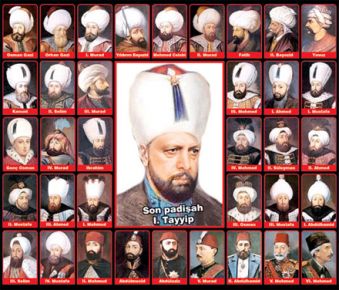

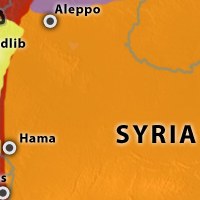
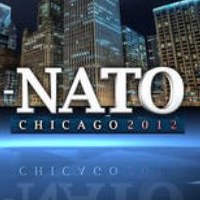
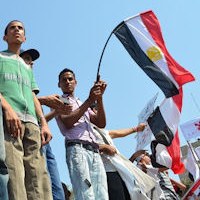

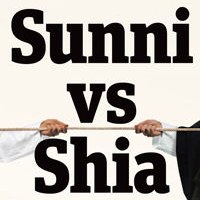




Latest Comments
Hello Mike, Thank you for your positive feedback to the article. I felt there wasn’t too much critical analysis of ...
Thanks for this considered and well constructed article. A follow up article on the manner in which the editorial contro...
THE CLUELESSNESS OF CLAIMING THAT OBAMA'S MIDDLE EAST POLICIES WERE A FAILURE CANNOT BE FURTHER FROM THE TRUTH, WHAT THE...
As long as Obama is the president of the usa do not trust the us government......
Thank you for an good read....